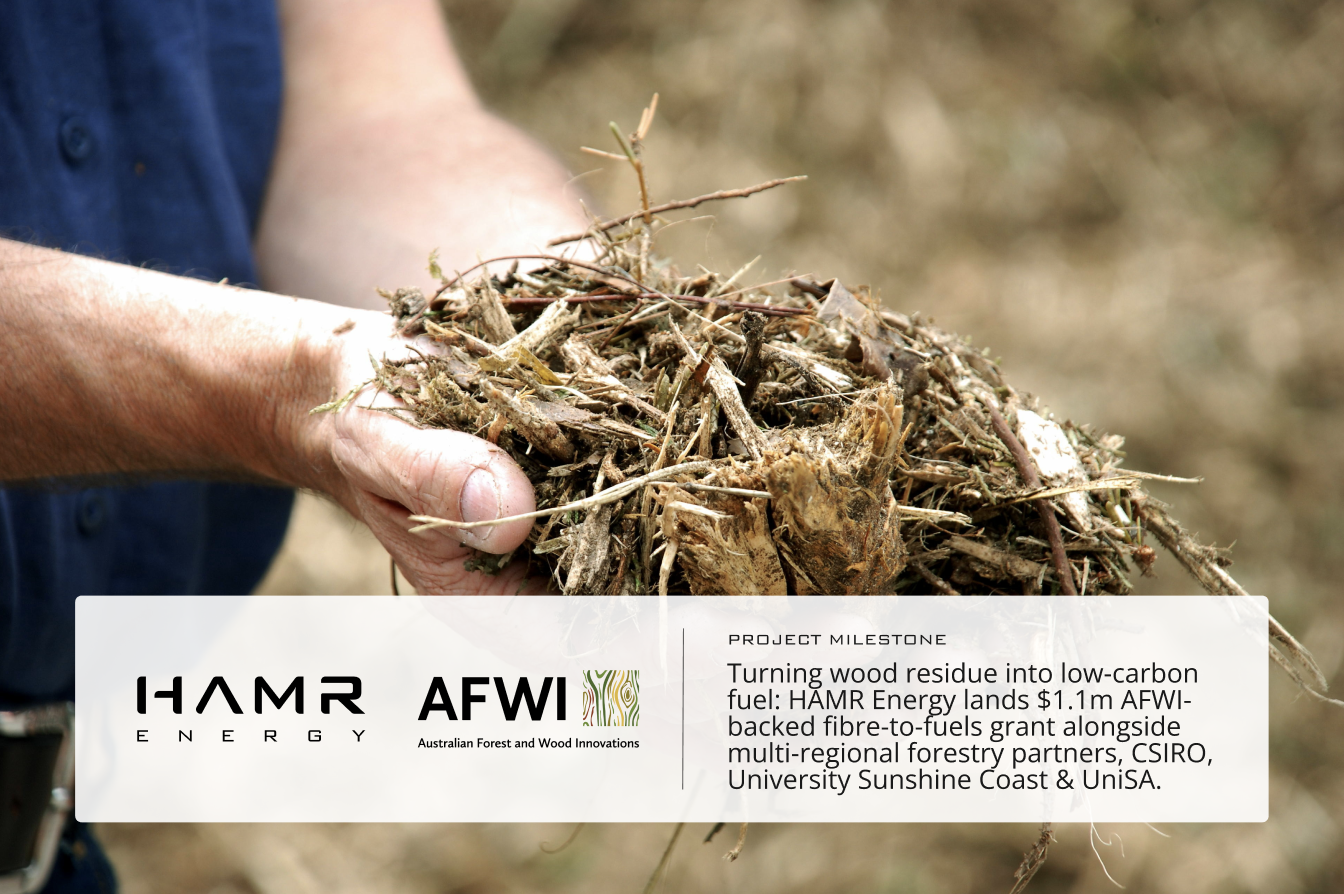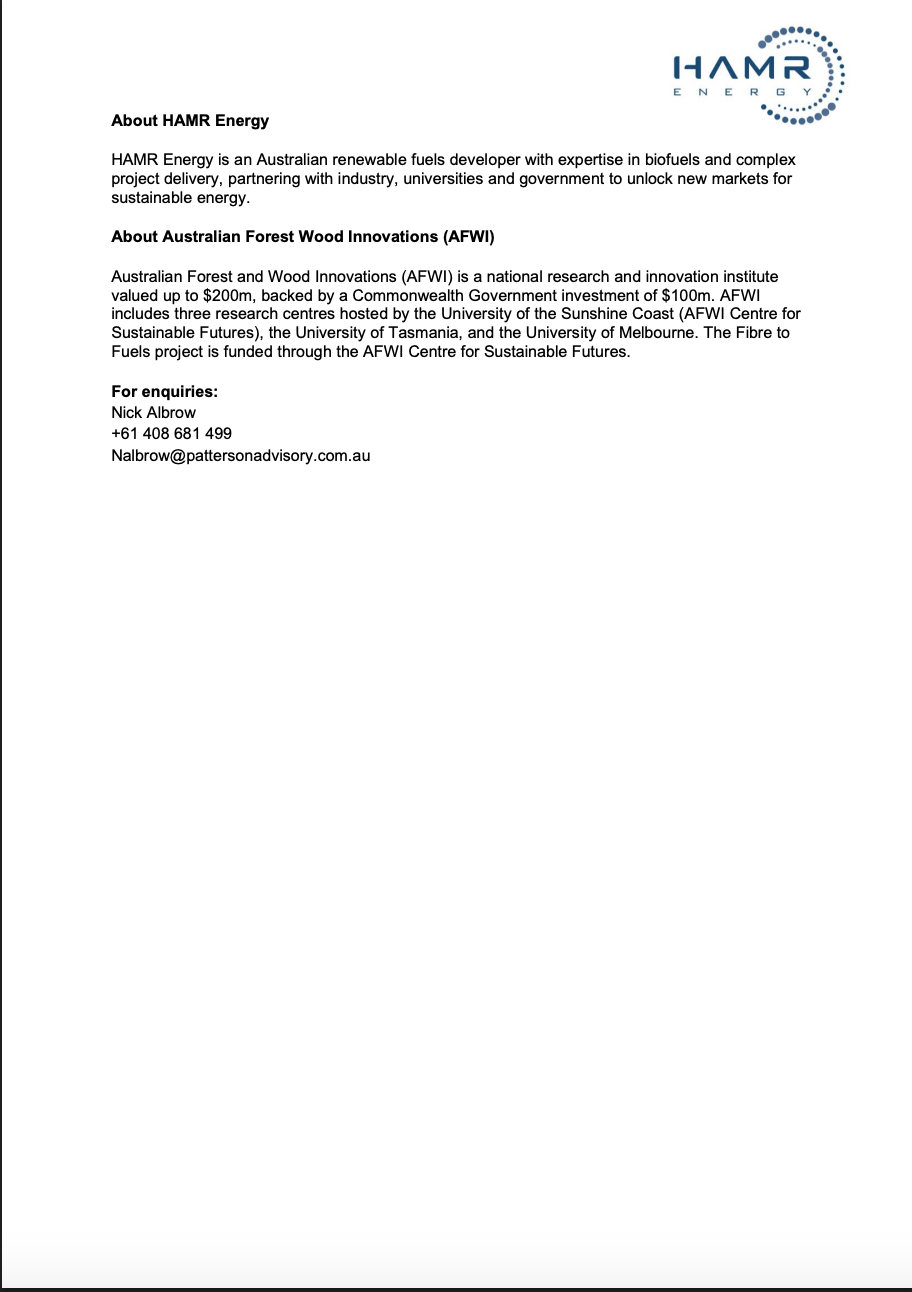Turning wood residue into low-carbon fuel with $1.1m AFWI-backed fibre-to-fuels project
Leading low-carbon liquid fuels (LCLF) company HAMR Energy today announced it has been awarded a $1.1 million grant from the Australian Forest and Wood Innovations (AFWI) Centre for Sustainable Futures (AFWI-CSF)
Leading low-carbon liquid fuels (LCLF) company HAMR Energy today announced it has been awarded a $1.1 million grant from the Australian Forest and Wood Innovations (AFWI) Centre for Sustainable Futures (AFWI-CSF) as part of a national initiative to convert Australian forestry residues into low-carbon fuels for aviation, shipping, and chemicals. The funding is a major step forward in linking Australia’s renewable energy and sustainable forestry sectors.
The Fibre to Fuels (F2F) project – recently approved for funding by the AFWI Centre for Sustainable Futures, hosted at the University of the Sunshine Coast, will validate the technical, commercial and emissions-reduction potential of producing methanol from key forestry residue streams via entrained-flow gasification. The project directly aligns with a key AFWI goal of making the most of our available wood fibre.
The announcement comes as the Australian Government confirms a major new commitment to cleaner fuel production pathways, including the expansion of domestic sustainable fuel manufacturing, outlined in the Minister for Infrastructure’s recent release, ‘Fuelling the future: $1.1 billion to power cleaner Aussie fuel production.’ (https://minister.infrastructure.gov.au/cking/media-release/fuelling-future-11-billion-power-cleaner-aussie-fuel-production).
HAMR Energy Director, Alex Smith, said the Fibre-to-Fuels project will demonstrate that forestry residues from plantations across Australia – including in the Green Triangle, Tasmania and WA – can be converted into low-carbon liquid fuels using proven technology.
“The findings will help forestry businesses unlock new value from their plantations, support Australia’s renewable fuels industry, and help reduce emissions from aviation and shipping,” Mr Smith said.
HAMR Energy has brought together a consortium of multiregional forestry stakeholders and leading Australian researchers from CSIRO, the University of Sunshine Coast and the University of South Australia.
Professor Mark Brown, Director of the AFWI Centre for Sustainable Futures, said this kind of translational research and industry partnership is at the core of AFWI’s national mission. “Forestry residues are a high-quality resource that can become a valuable domestic feedstock for renewable fuel production,” Professor Brown said. “Fibre to Fuels exemplifies the type of commercially-minded innovation that can move Australia to the forefront of low-carbon manufacturing, delivering regional benefits, building sovereign capability, and contributing to the decarbonisation of hard-to-abate sectors.”
The Fibre-to-Fuels project is part of a new round of approved AFWI-CSF research projects designed to strengthen Australia’s forest, wood and fibre sectors. This work will accelerate innovation across bio-based materials, renewable energy and climate-resilient forestry and help position Australia as a global leader in sustainable, low-carbon manufacturing.




